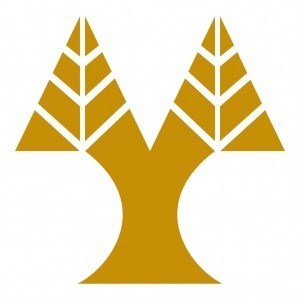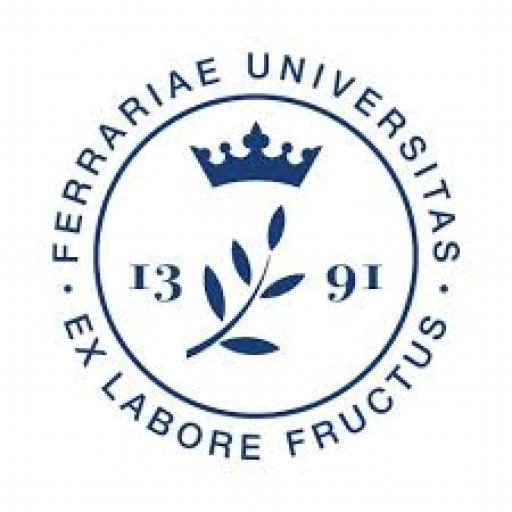Photos of university / #uniofyork
Early Prehistory at the University of York offers an in-depth exploration of the origins and development of human societies during the Paleolithic period. This programme provides students with a comprehensive understanding of human evolution, archaeological methodologies, and the cultural transformations that characterized early human life. Students will engage with a diverse range of topics, including the earliest hominins, tool technologies, migration patterns, and environmental adaptations, using both theoretical frameworks and practical research skills. The curriculum combines lectures, seminars, and hands-on archaeological excavation techniques, allowing students to develop critical analysis and fieldwork competencies. Through study of key archaeological sites and primary sources, students gain insights into how early humans interacted with their environments and each other, laying the foundation for modern human societies. The programme emphasizes interdisciplinary approaches, integrating insights from anthropology, archaeology, and evolutionary biology to foster a holistic understanding of early human history. Graduates of this programme are well-equipped for careers in archaeology, museums, education, or further research, benefiting from the university’s strong links with archaeological institutions and research centers. The campus facilities include laboratories, digital archives, and fieldwork opportunities that enhance learning and practical skills. Overall, Early Prehistory at the University of York prepares students to contribute to scholarly research and to understand the complexities of human origins through a rigorous academic framework supported by expert staff and active research projects.
The BA Archaeology with Early Prehistory programme at the University of York offers an in-depth exploration of the earliest periods of human history, focusing on the development of early human societies, technologies, and environments. Throughout the course, students will examine the archaeological record, spanning from the earliest stone tools to the emergence of complex societies. The programme combines theoretical knowledge with practical skills, including archaeological excavation, artifact analysis, and archaeological survey techniques. Students will engage with a wide range of topics such as human evolution, Paleolithic and Neolithic cultures, early migrations, and the development of prehistoric economies and social structures. Emphasizing critical thinking, the curriculum encourages students to analyze archaeological data, interpret findings within broader historical contexts, and develop their own research projects. Fieldwork is a central component, providing hands-on experience through supervised excavations and site visits, fostering an understanding of archaeological methodologies and the importance of preservation. The programme also integrates multidisciplinary approaches, incorporating insights from anthropology, geography, and environmental science to build a comprehensive view of early human life. Faculty members are experienced researchers and practitioners, guiding students through cutting-edge research and current debates in the field. Graduates of the Early Prehistory pathway will be well-equipped for careers in archaeology, heritage management, museum curation, or further academic research. They will develop strong skills in critical analysis, report writing, and presentation, preparing them for diverse professional environments. Overall, this programme offers an engaging and rigorous pathway into the fascinating world of early human origins and prehistoric societies, fostering a deep understanding of our ancestral past and its relevance to modern human identity.
The Early Prehistory program at the University of York requires students to demonstrate a comprehensive understanding of the origins and development of human societies from the earliest times through the Palaeolithic era. Students must engage with a wide range of archaeological methodologies, including excavation techniques, material analysis, and chronological dating methods, to interpret early human activity. The program emphasizes critical thinking and analytical skills, encouraging students to evaluate different theoretical frameworks and interpretative approaches within prehistory. Coursework includes lectures, seminars, practical sessions, and fieldwork opportunities, designed to provide both foundational knowledge and hands-on experience. Students are expected to complete a series of modules covering topics such as human evolution, stone tool technologies, environmental reconstructions, and migration patterns of early humans. The curriculum also integrates discussions on extinct fauna, climate change impacts during the prehistoric period, and the cultural practices of early societies. Assessment methods include written essays, project work, presentations, and examinations, aimed at developing academic writing and communication skills. To graduate with a degree in Early Prehistory, students are generally required to achieve a minimum of 120 credits per academic year, culminating in a dissertation that demonstrates independent research capability on a relevant prehistorical topic. The program encourages the development of research skills through supervision and access to university resources, including the university library and laboratory facilities. Additionally, students are encouraged to participate in internships or collaborative projects with museums, archaeological institutes, and research organizations to enhance practical experience and employability. Throughout the program, students are supported by experienced staff specializing in archaeology, anthropology, and palaeoenvironmental studies, ensuring a multidimensional approach to understanding early human history. The program aims to prepare graduates for careers in archaeological research, heritage management, museum curation, or further academic study, fostering a deep appreciation for the significance of early human history and its impact on contemporary society.
The University of York offers various financing options for students enrolled in the Early Prehistory program. Prospective students are encouraged to explore funding opportunities through government-funded student loans, including undergraduate and postgraduate schemes, which provide financial support based on eligibility criteria. The university also provides scholarships and bursaries specifically for students in archaeology and related disciplines, aimed at reducing the financial burden of tuition fees and living expenses. Additionally, students may access external funding sources such as research council grants, charitable foundations, and industry-sponsored scholarships, which are often awarded based on academic merit or research interests. The university’s Financial Support Office offers comprehensive guidance on applying for financial aid, budgeting assistance, and managing study-related expenses throughout the course duration. For International students, there are specific scholarship programs and financial packages designed to facilitate overseas study, including tuition fee discounts and grants. The university encourages early planning and consultation with its financial advisors to identify the most suitable funding options. Payment plans are available to spread out tuition fee payments across the academic year, making financial management more manageable for students. Part-time work opportunities, either on-campus or in the local community, are also promoted to supplement income while balancing academic commitments. Overall, the University of York aims to ensure that financial barriers do not hinder access to its Early Prehistory program, providing a range of financial aid options tailored to meet diverse student needs.
Early Prehistory at the University of York offers an in-depth exploration of the origins of human life and the development of early human societies. This programme is designed for students interested in understanding the evolutionary processes that have shaped human existence from the emergence of the first hominins to the development of complex societies. The course covers a wide range of topics, including archaeological methods, fossil analysis, palaeoenvironmental reconstructions, and the interpretation of ancient artefacts. Students will study the earliest periods of human history, focusing on key sites and discoveries that have contributed to our understanding of early human behavior, migration patterns, and adaptation strategies.
The curriculum emphasizes both theoretical knowledge and practical skills. Students participate in fieldwork, laboratory analysis, and digital modelling to develop a comprehensive understanding of archaeological techniques. The programme also examines the significance of technological innovations, dietary practices, and social structures in early human communities. Through a combination of lectures, seminars, and hands-on projects, students are encouraged to critically evaluate current research and contribute to ongoing debates in the field of prehistory.
Career prospects for graduates include roles in archaeology, heritage management, museum curation, research, and education. The programme also provides a solid foundation for those wishing to pursue postgraduate studies in archaeology, anthropology, or related disciplines. The University of York is known for its strong research community and excellent resources, including access to a wide range of collections and fieldwork opportunities. Overall, the Early Prehistory degree offers a challenging and rewarding academic experience for students passionate about understanding the deep history of humanity.



